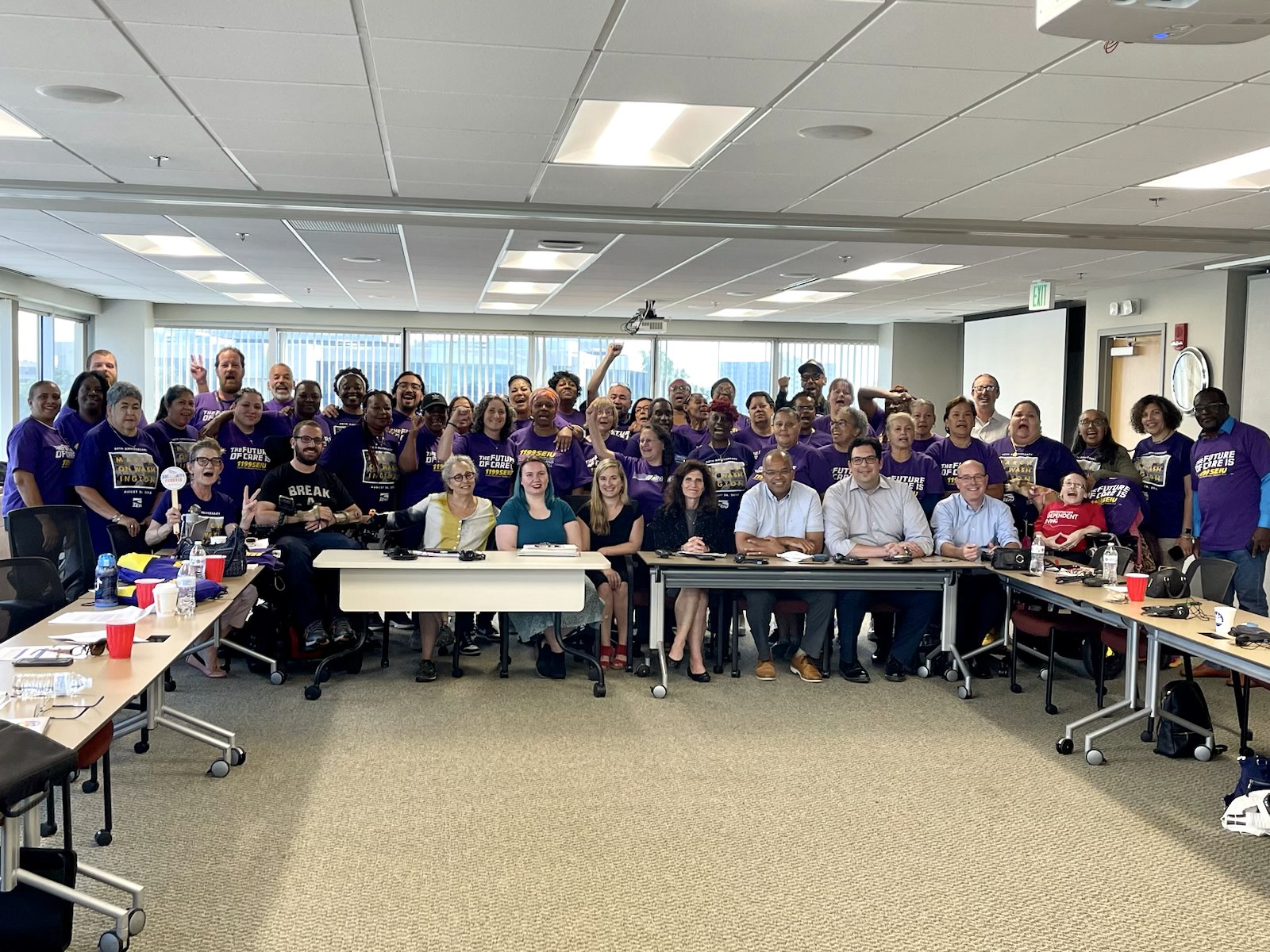A new three-year contract was negotiated by the Personal Care Attendants (PCAs) from 1199SEIU United Healthcare Workers East with the Healey-Driscoll Administration, which creates a pathway to $25 per hour for the state’s homecare workforce.
The contract introduces a wage scale based on experience level to provide more career advancement opportunities. PCAs working with clients who have more complex needs will receive additional pay.
“There are about 58,000 personal care attendants in Massachusetts for whom we were negotiating our agreement,” said Rebecca Gutman, vice president of home care at 1199SEIU United Healthcare Workers East. “We were negotiating our agreement. We started in March of this year with a huge rally in downtown Boston at the Embrace monument. We did that intentionally because the majority of caregivers and personal care attendants are women of color. And we wanted to really show the connection between racial and economic justice.”
Gutman said that the PCAs partnered with the disability community to put pressure on the Healy administration to invest in caregivers. According to her, PCAs provided care for people with disabilities and elders in their homes, but many were struggling with poverty wages and lack of benefits/training opportunities.
“That partnership was intentional,” Gutman said. “We wanted to highlight how our fates are intertwined. If the caregivers are not paid a fair wage, and not treated fairly, then people with disabilities and elders won’t be able to find caregivers and remain at home where they want to be.”
“I grew up watching my mom care for seniors in their homes, and I have a deep appreciation for the important work that Personal Care Attendants do,” said Gov. Maura Healey. “Our administration is proud to reach this historic agreement that provides fair pay and benefits for PCAs that reflect the heroic contributions they make to Massachusetts families.”
According to the new contract, PCAs will now receive retirement benefits for the first time. Paid time off can be cashed out since PCAs often cannot take time off. Identification cards will also be issued to PCAs for safety reasons when working in different neighborhoods.
“Identification cards might not immediately seem like a racial justice issue,” Gutman said. “But particularly for women of color who are going into different neighborhoods, having that ID card is really important for safety reasons. We were also able to get a racial justice committee and have committee members paid to do the important work of addressing inequities in the program.”
Through the contract, homecare workers also won two additional holidays, Juneteenth and Martin Luther King Day to align with the state holidays in Massachusetts.
“Apart from all the benefits this contract is about feeling recognized and valued,” Gutman said. “I hope this contract will help PCAs stay in the field, attract younger workers, and make it easier for people with disabilities to find caregivers.”

